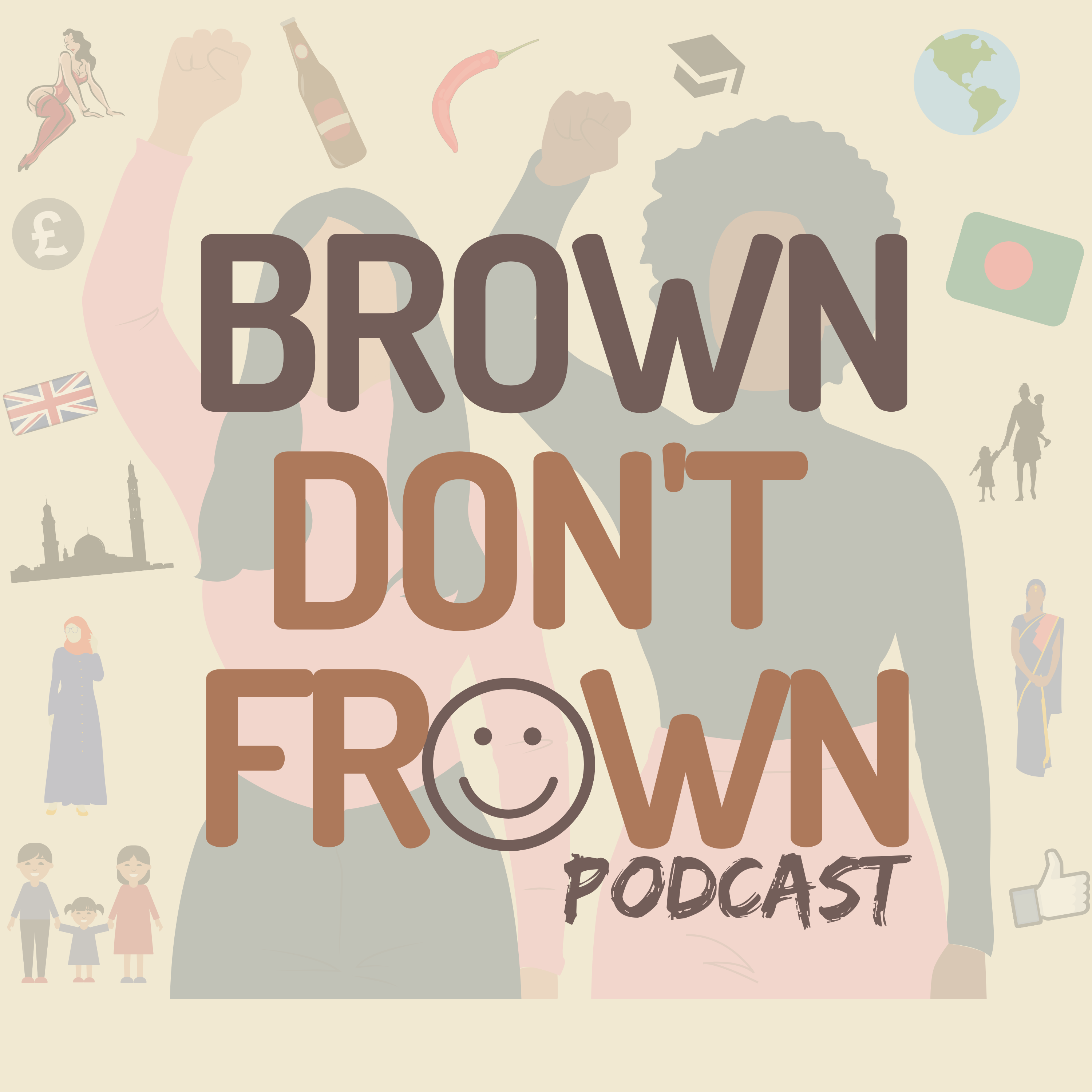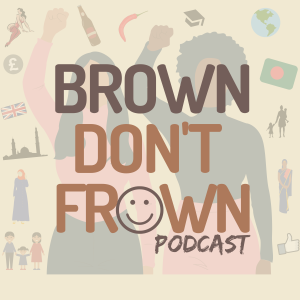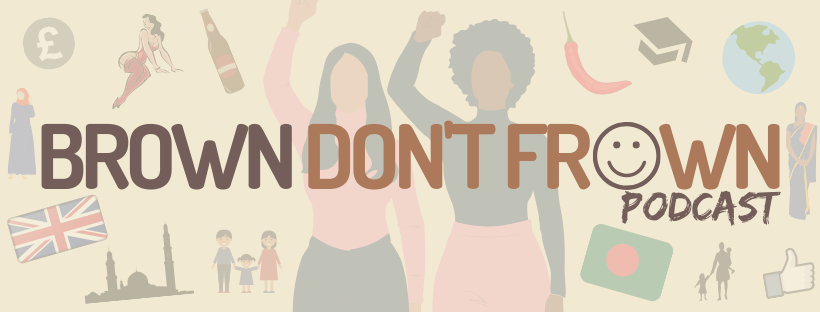
Brown Don't Frown was borne out of a personal journey with womanhood. As a British Bangladeshi, navigating mainstream Feminism often felt exclusionary to me because it didn’t seem to value the experiences or views which shaped my grandmother’s, aunts’, mother’s or friends’ lives. Through this podcast, we seek to build a more inclusive discourse, which breaks down presumptions about different cultures, and shines a positive light on the stories of underrepresented women. Featuring new guest(s) from different walks of life in each episode, Brown Don’t Frown seeks to engage ordinary women and facilitate openness towards entirely new perspectives. It hopes to spark honest and meaningful conversations about intersectional feminist themes in contemporary society with the acknowledgement that our views are shaped by our cultural, racial, religious, social and political experiences. Whether it's discussing society's preconceptions about the Hijab with a British-born Jamaican Muslim woman or examining the impact of gendered expectations on our ability to grieve on our own terms, we hope listeners finish each episode feeling more rounded than they did before. Follow us on: Instagram: https://www.instagram.com/browndontfrownpodcast/ Twitter: https://twitter.com/bdfpodcast?lang=en Facebook: https://www.facebook.com/browndontfrownpodcast LinkedIn: https://www.linkedin.com/company/browndontfrownpodcast
Episodes

Sunday Apr 19, 2020
Season 2: Ep 13 - Do we need a Feminist Foreign Policy?
Sunday Apr 19, 2020
Sunday Apr 19, 2020
What is Foreign Policy? How can it be Feminist? Does it only work for one sex or can it work for everybody? How do the states and institutions which claim to be the proponents of feminist foreign policy ensure it is ethical and inclusive?
Climate Change Journalist Sharlene Gandhi and I examine how feminist foreign policy can be a tool to reshape our conventional thinking: from balancing production and climate change, to the delicacy of trade relations, to the significance of women’s participation in global peace talks, and everything in between. Using Canada and Sweden as examples, we look at the positives and negatives of feminist foreign policies. We also critique how capitalistic ideals have pushed for women’s economic independence without their participation or feedback, or regard for their cultural livelihoods, health and safety, or their children’s well-being.
We advocate an intersectional approach to foreign policy which has regard to the historical structural power relations as well as gender inequality, and one that continually adapts the narrative in line with the world’s rapidly-changing priorities.

No comments yet. Be the first to say something!